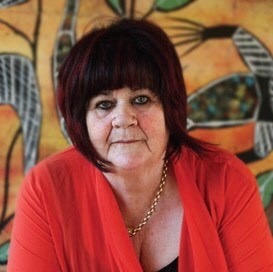
“The court’s decision is disappointing to those of us who have fought for so long and so hard for recognition of the needs of our community and how best to meet them,” writes a frustrated JULIE TONGS.
THE Supreme Court of the ACT delivered its decision in the case of Brown v Director-General of the Justice and Community Safety Directorate on April 11.

The case is one of many recently brought by Alexander Maconochie Centre (AMC) detainees and ex-detainees against the ACT government for breaches of the Human Rights and/or the Corrections Management Acts.
The issue in contention in this case was the failure by ACT Corrective Services to ensure that the applicant, Ms Keira Brown, who is an Aboriginal woman, was availed of the opportunity to undergo an Aboriginal Health Assessment (AHA) while detained in the AMC.
Central to the case brought by Keira was the obligation imposed on ACT Corrective Services to ensure, consistent with the Human Rights Act and the Corrections Management Act, that detainees in the AMC have access to health services equivalent to those available to people not incarcerated in the ACT.
It is a matter of fact that ACT Justice Health, which is the ACT government health service operating within the AMC, does not make available to Aboriginal detainees an AHA.
An AHA is a diagnostic tool specifically designed to assist in assessing the health status of Aboriginal peoples and is recognised throughout Australia as a fundamentally important tool for assessing and responding to the health-care needs of Aboriginal peoples. It is reflected in a specific Medicare Benefits Schedule item and is often referred to as the “715”.
It involves taking a detailed patient history, performing particular examinations and may involve a range of screening tests. It was devised as a direct and urgent response to the appalling health status of Aboriginal peoples when compared to other Australians.
Winnunga strives for best practice in providing health care and, as such, undertakes an AHA for all its Aboriginal and/or Torres Strait Islander clients, including in the AMC.
Although Medicare cannot be claimed for services provided to clients in the AMC, Winnunga strongly believes in the value of this assessment and ensures it’s available to all Aboriginal and/or Torres Strait Islander clients of the service. However, not all Aboriginal detainees are able to access the Winnunga clinic in the AMC.
In light of the non-provision by Justice Health of AHAs to Aboriginal detainees in the AMC and the fact that AHAs are routinely undertaken in the ACT community, I had thought that this was an open and shut case of a breach by the ACT government of the law and its obligations to Aboriginal detainees.
Regrettably, that is not how the Supreme Court saw the matter. I have read the judgements delivered by the three judges who heard the case but, unfortunately, the language, legalese and reasoning have left me, a non-lawyer, confused as to how or why the court decided that in this case “equivalent” doesn’t mean “the same as”.
Of particular concern is that the judgement doesn’t appear to me to fully appreciate the nature of and rationale for an AHA or that it has been specifically designed to identify health-related issues pertinent to Aboriginal peoples and how best or most appropriately to respond to them.
In this regard it’s relevant to reflect on remarks by Senator Patrick Dodson, recently reported in “The Sydney Morning Herald” in which he again highlighted that, since 1991, more than 525 Aboriginal Australians have died in police or prison custody.
He urged the federal government to establish an indigenous justice committee to oversee state and territory coronial inquests and ensure that there be Aboriginal-specific and tailored health services in every prison in Australia.
While he did not say so, I am certain Senator Dodson would also insist that each of those Aboriginal-specific and tailored health services undertake a regular Aboriginal Health Assessment of all Aboriginal detainees.
It would be revealing to confirm how many of the 525 dead Aboriginal detainees referred to by Senator Dodson had undertaken an AHA. I understand the answer is none.
Regardless of that, I’m certain Senator Dodson would not be satisfied with the provision of the Clayton’s variety of health assessment that ACT Corrective Services, on behalf of the government, has successfully argued for.
Suffice to say, I am surprised and disappointed with the decision handed down by the ACT Supreme Court.
It is disappointing to those of us who have fought for so long and so hard for recognition of the needs of our community and how best to meet them. Frankly, how are we ever going to close the gap?
I also do not believe that the court’s interpretation reflects the intent of the author of those two acts, namely then chief minister Jon Stanhope (in fact, he has told me that is the case) and I believe it behooves the ACT government to introduce, as a priority, amendments to both these acts to ensure, as a minimum, that Aboriginal Health Assessments are available, on a regular basis, to all Aboriginal detainees in the ACT.
Julie Tongs is the CEO of Winnunga Nimmityjah Aboriginal Health and Community Services.
Who can be trusted?
In a world of spin and confusion, there’s never been a more important time to support independent journalism in Canberra.
If you trust our work online and want to enforce the power of independent voices, I invite you to make a small contribution.
Every dollar of support is invested back into our journalism to help keep citynews.com.au strong and free.
Thank you,
Ian Meikle, editor









Leave a Reply